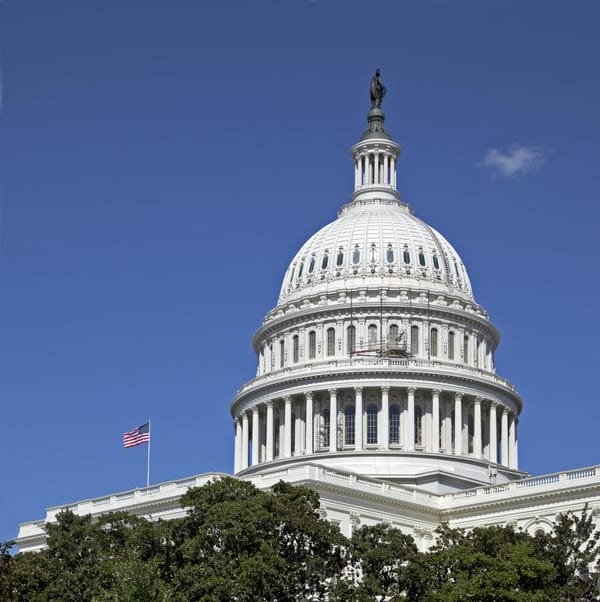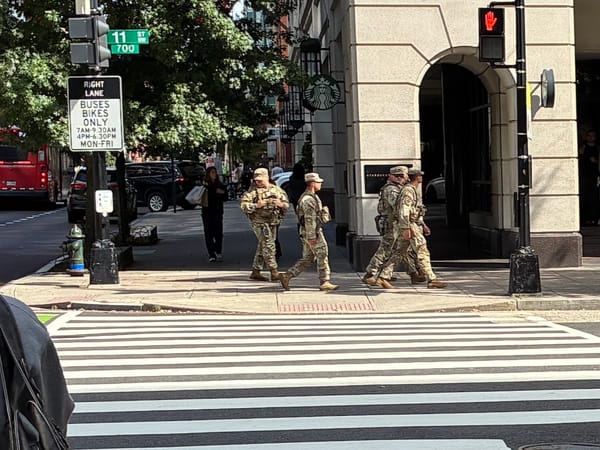Trump Trashes Rosie: Distraction or Opportunity?
The question right now is whether O'Donnell, who has engaged in high-profile legal battles in the past, wants to go after Trump for defamation in American courts, assuming the Supreme Court does not foreclose such an option.

Not a day goes by it seems without America's would-be dictator threatening yet another human being or groups thereof. On Saturday, Trump threatened to strip now Ireland-based American comedian Rosie O'Donnell of her citizenship. He has no authority under the Constitution to do so. Neither does Congress. If she elects to, however, O'Donnell could potentially create some pretty massive trans-Atlantic legal and political headaches for Trump, a fate he certainly richly deserves.
In the 23 years since O'Donnell came out as a lesbian, she and every other American have watched as the country has taken a slow, often politically and socially contentious path towards recognizing in law and in reality what has always been true: we're all human regardless of whom or how we chose to love. At least until Trump and the Trumpified GOP came along and began a campaign of demonization and political persecution of the LGBTQ+ community.
O'Donnell made it clear that her decision to leave America for Ireland was not simply motivated by a loathing of Trump, but by a real and palpable fear of political persecution of herself by Trump. But unlike most of the rest of us, O'Donnell has the kind of name recognition, media savvy, and probably the financial resources to make Trump's life at least a little more miserable.
Irish and EU laws provide O'Donnell--who is in the process of becoming an Irish citizen--with a lot of privacy protections for her personal and business communications--the kinds of communications that might well be swept up under the Foreign Intelligence Surveillance Act's (FISA) Section 702 program.
Under the EU's General Data Protection Regulation (GDPR), O'Donnell could seek records mentioning her from the Irish government, including any records that mention or infer U.S. government surveillance aimed at O'Donnell or U.S. requests that Irish authorities surveil O'Donnell on the Trump regime's behalf. If the Irish government refused to release the records on "national security" grounds, O'Donnell could appeal to the Irish Data Protection Commission, and if necessary, the European Data Protection Board and ultimately the Court of Justice for the European Union.
Each of these actions would be newsworthy and potentially policy making in their impact, particularly if O'Donnell succeeded in compelling the release by Irish authorities of data revealing U.S. government surveillance of her communications, diplomatic efforts to get the Irish government to silence or even expel her, etc.
Simultaneously, if O'Donnell were able to retain counsel in the U.S., she could sue for information from the Justice and State Departments for records mentioning her, including FISA-related records or State Department cables, which would also force Trump to defend his regime's actions in federal court--once again generating media coverage and giving her the opportunity to make the case that Trump's targeting of her is a clear cut form of political repression.
Finally, Trump's statements attacking her and his obviously false claims that O'Donnell is "a threat to humanity" might just be enough to give her grounds for a civil defamation suit against Trump.
Indeed, it was just last week that the 2nd Circuit Court of Appeals shot down Trump's appeal of the defamation verdict E. Jean Carroll won in 2023, to the tune of $5 million. Trump has less than 90 days now to appeal that decision to the Supreme Court, which last year ruled that neither Trump nor any president could be criminally charged for their "official acts." That same opinion also stated that "...the immunity we have recognized extends to the 'outer perimeter' of the President’s official responsibilities, covering actions so long as they are 'not manifestly or palpably beyond [his] authority.'" (emphasis added)
The Constitution provides no power for the president to strip a natural born U.S. person of their citizenship.
Accordingly, if Trump were to issue an executive order to that effect it would be unconstitutional and unenforceable, being "manifestly or palpably beyond" presidential authority--thus theoretically leaving him vulnerable to a potentially high-dollar defamation damage suit by O'Donnell.
I say "theoretically" vulnerable because we currently have a Supreme Court majority that too often has been willing to grant Trump--and by extension anyone who follows him--powers and protections that have no basis in the plain text of the Constitution.
Prior to the Supreme Court majority's decision in the Trump v. US presidential immunity case in July 2024, I would've thought that it was simply common sense that no presidential act that violated the Constitution could remotely be considered an immunized "official act" in this Republic. What remains to be seen is whether the high court, either via it's increasingly infamous "shadow docket" (i.e., emergency appeal docket) or during its forthcoming 2025-2026 term, will similarly rule that an American president cannot be civilly sued for defamation while in office.
The question right now is whether O'Donnell, who has engaged in high-profile legal battles in the past, wants to go after Trump for defamation in American courts, assuming the Supreme Court does not foreclose such an option. If it does remain a viable legal pathway, I hope she does take him to court because the only thing Donald Trump respects, indeed fears, is those with countervailing power--legal, financial, or political--who can do him real damage.
REMINDER: You can get 30% off my new book about past episodes of unconstitutional surveillance and political repression, the Triumph of Fear, by going directly to the Georgetown University Press website and using the code TGUF...and this code can be used by anybody, so spread the word and thanks for being a Sentinel subscriber!





